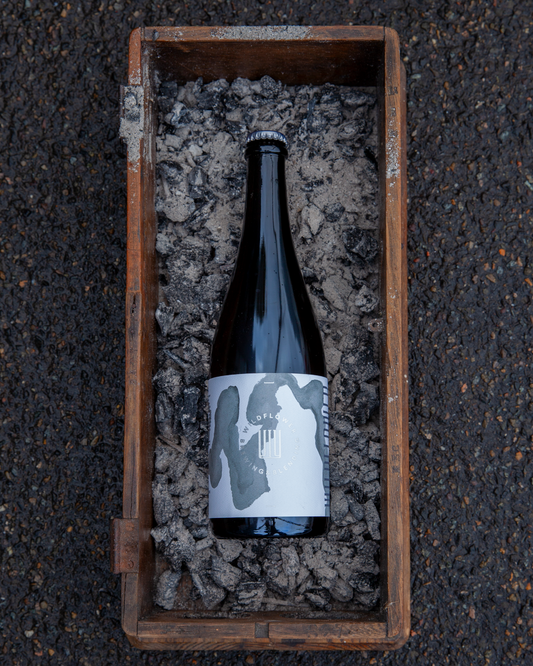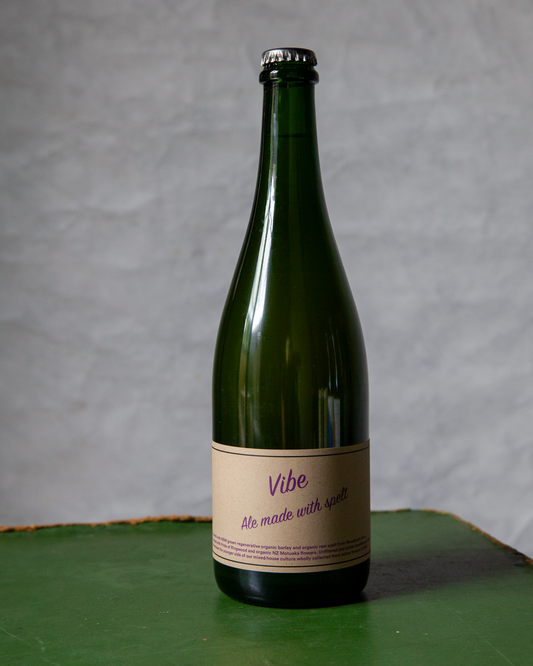We are excited to announce that Wildflower x Brash Higgins Zibeerbo 2019 will be available online and for take-away/collection from 12pm (Sydney time) on Wednesday 6 May 2020.
Zibeerbo 2019 is a golden barrel-matured Australian Wild Ale aged with Muscat of Alexandria (Zibibbo) skins after six months in terracotta amphora from our friends at Brash Higgins, McLaren Vale SA. I'm so happy to have this beer back. This is the second release of our collaborative beer and project with Brad Hickey. Zibeerbo is the marriage of our barrel aged Gold with pressed Zibibbo (Muscat of Alexandria) skins out of amphora after 6 month fermentation/ageing in clay. You can have a peek at Brad's description of the wine here.
This year, as last, when time came to move the wine out of the amphora, Brad put the pressings (skins) into a sealed container that wasa gassed and immediately sent to Sydney. Upon receiving them in early August, we transferred the skins to a stainless steel vessel and blended in barrels 1707 (13 month old Gold), 1806 (13 month old Gold) and 1828 (10 month old Gold). The beer then aged and slowly macerated and fermented for 3 months in contact with the skins. We packaged it on 5 December 2019 and let it rest and mature in bottle for 5 months until release in May.
This year's blend makes use of older barrel stock in order to help soften the palate from what was a sharper acid last year. At release, Zibeerbo 2019 really reminded us of Costadila Moz, a naturally fermented prosecco from Veneto. Skinsy muscat on the nose, beautiful citrus, ripe peach and underlying spice from the skins, the palate is much more representative of our beer with stonefruit, citrus and a soft, supple palate (more so than the '18 and the Costadila). Zibeerbo 2019 finishes clean, dry and moreishly fruity with a hint of minerality that takes you back for more.
There are 1187 x 375ml bottles of Zibeerbo 2019 which will be split between our online shop, cellar door and wholesale accounts across Australia.
Like all our beers, Zibeerbo 2019 is best enjoyed when decanted off a settled natural yeast sediment at cellar temperatures (10-12°C).



